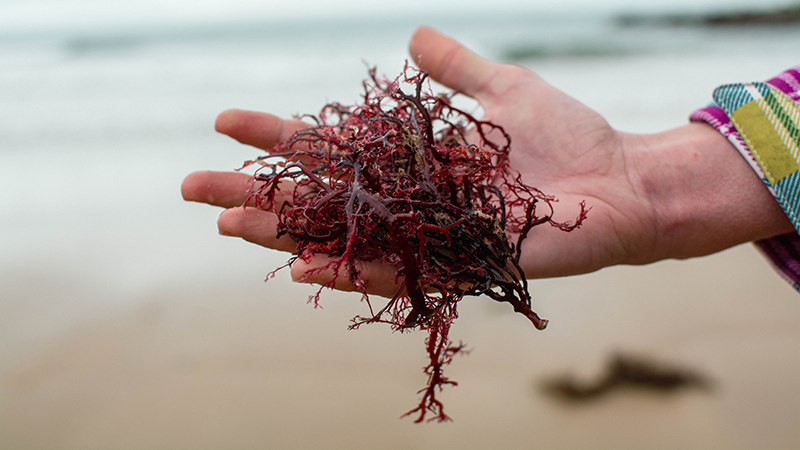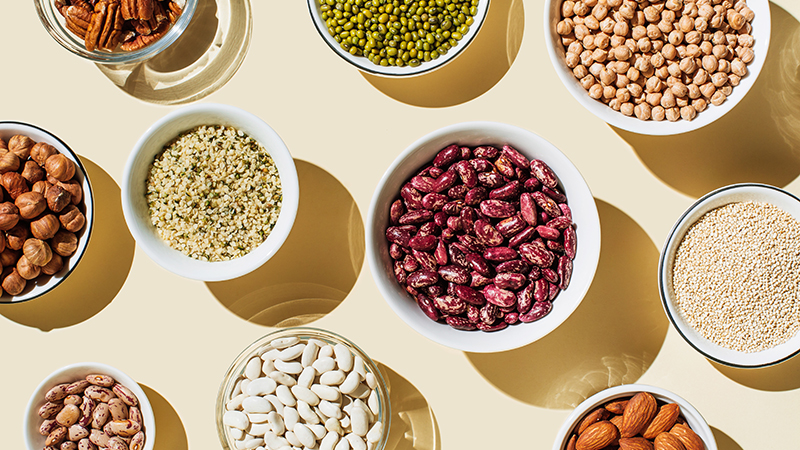What it Means to Eat Well With Chemo
Nutrition Tips During Cancer Treatment
Eating a balanced diet can be tough during cancer treatment. Chemotherapy and other cancer treatments may cause certain side effects that decrease your appetite, cause digestive issues or make you too tired to eat. But, good nutrition habits can give you the strength and energy you need to fight cancer and help you better tolerate treatment while lowering your risk of infection.
“There is no such thing as a cancer diet. Eating a well-balanced diet and maintaining a healthy body weight is important as part of prevention as well as during treatment and beyond. During cancer treatment, you need to consume the right amount of nutrients and calories, in whatever way you can, especially if you are losing weight,” says Colleen DeBoer, MS, RD, LDN, CDE, a clinical dietitian with Northwestern Medicine Lake Forest Hospital.
During a time when many other things are out of your control, nutrition is something you can manage – and even have a little fun with while doing so. Here are some easy-to-digest tips for coping with nutrition-related challenges during cancer.
Fight Through the Fatigue
Cancer treatment can result in loss of appetite and make it more difficult to consume the calories you need, making eating at all a priority. So plan your meal, before anything else, when you have energy to eat. If you’re struggling to find the motivation to eat, it can help to break old rules and try new strategies. That can mean eating your favorite foods any time of the day – like breakfast for dinner or dessert for breakfast – or making meal time enjoyable by playing your favorite music or inviting someone you love for dinner conversation.
Drinking plenty of fluids to avoid dehydration can fight fatigue. Short walks, yoga and other moderate physical activity can also help and if you need to rest, take a few short naps, instead of one long one. Stress feeds into fatigue, so practice stress-relieving habits as much as possible.
Maintain a Healthy Body Weight
When your body struggles to consume the calories you need, you’re more likely to lose concerning amounts of weight. To get the nutrients you need, DeBoer recommends eating several mini-meals throughout the day – rather than three large meals – and snack as needed. Keep protein-rich snacks on hand that are easy to prepare and eat, such as yogurt, hearty chicken soup or trail mix.
Eat Well As Much As You Can
While your dietitian may accept daily ice cream as a necessary evil to get the calories you need, try your best to keep to your usual healthy eating habits. The American Cancer Society and National Institute of Cancer Research recommend eating a plant-based diet, with at least 2 ½ cups of fresh fruits and vegetables each day, and whole grains such as brown rice, whole wheat pasta and oatmeal, during treatment. Your body also benefits from omega-3 fatty acids found in avocado, flax seed, tuna and salmon. Limit the amount of processed food and added sugar in your diet by avoiding cookies, crackers, chips and other pre-packaged food.
Prepare for New – and Unpleasant – Tastes
The average person has up to 10,000 taste buds and during cancer treatment that can result in heightened awareness of bitter or metallic tastes. Use plastic flatware and rinse your mouth throughout the day to help your palate. Try flavoring your food with new and varying spices – basil, oregano, rosemary, tarragon, ketchup, mustard, or garlic work well.
You may be sensitive to the odors of certain food, too. Take advantage when someone else offers to do the cooking. Or put a lid on it: Covering your food while it’s being prepared can contain some of the smells. For a mid-day snack, treat yourself to a shake that can be drunk through a straw to mask smells. If you feel nauseous, try ginger ale or saltine crackers.
Adjust for Mouth Sores
Mouth sores are another common eating problem. Avoid citrus fruit, pineapple, tomatoes, carbonated drinks, and other things that may cause burning such as mouthwash. Prepare food at lukewarm or cold temperatures, and lean toward soft foods such as eggs, bean dishes, pasta, or pudding. A fruit smoothie may be easier to digest and you can always add Ensure for added protein.
Anticipate Digestive Issues
Certain pain medications cause digestive issues. For constipation, whole-grain, high-fiber foods, such as green peas, potatoes with skin, kidney beans, blueberries, prunes or pears can help. Eat at the same times each day to increase your chances of having regular bowel movements. Drink eight to 10 cups of liquid daily, and try warm lemonade or other hot beverages that may help stimulate a bowel movement. Use laxatives only as directed by your cancer care team.
If your bowels are very loose, limit your fiber and milk products, and avoid fried, greasy food. Choose broth, sports drinks, pretzels, lean chicken, applesauce and bananas until your digestion returns to normal.
Talk to Your Team About Supplements
Certain herbal, vitamin and mineral supplements may interact with your cancer medications, and your cancer care team should advise you about which ones, if any, are safe to take. “It is recommended to obtain nutrients through food itself rather than herbal supplements unless a deficiency is present and a supplement is recommended by your physician or dietitian.” DeBoer advises.
Most side effects and eating problems will go away after treatment ends. Keep in mind that side effects vary from person to person, so do what works best for you to consume the nutrients – and calories – you need during this time. That may mean pizza for breakfast and ice cream for every snack. It’s a personal thing – and only temporary. For help creating a balanced eating plan, be sure to talk to your cancer care team and a registered dietitian.





